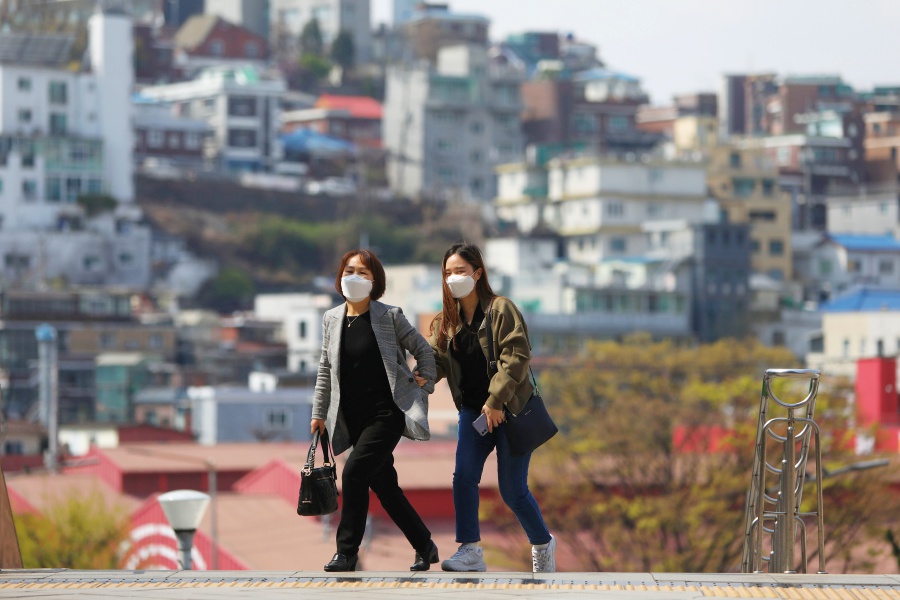Despite South Korea recording a spike of COVID-19 cases in February, the country of 50 million managed to dramatically reduce the number of new cases throughout March, and has since been looked upon by other countries as a shining example on how to deal with an infectious disease. We asked Margaret Key, the Seoul-based APAC CEO of MSL, about South Korea’s secret sauce.
“I think part of the reason for Korea’s success is because of their experience in managing these types of health scares previously. First it was SARS, then it was H1N1. There were under a million cases in Korea during H1N1. And then MERS came after,” she said.
MERS—which hit Korea in 2015—was not seen as a successful case, and the Korean public was critical in the way the government maneuvered the outbreak.
“Koreans rally very quickly around causes that they think are very important, and at that time, there was a lot of pinpointing and blaming of ineffective management. And the government said ‘Alright, if this were to happen again, what do we then do?’ Based on those experiences, it’s really allowed the Korean government and its leaders to mobilise very quickly around COVID-19,” said Key.
Only a week after the Chinese government released the genome sequencing of COVID-19, the Korean government had organised meetings with biotech companies and researchers to get testing in place. At the peak of the virus, some 20,000 people were getting tested a day, and over 600 centres were delegated to carry out testing.
From a comms perspective, Key said the clear winner was Jung Eun-kyeong, director of the Korea Centre for Disease Control.
“At the very beginning, she was on TV twice a day giving briefings on infection rates and sharing tips on self-protection She is in many ways the ‘hero’ and some citizens have promoted the idea of her running for Prime Minister, because she has rallied citizens together by making sure that they have the right information,” said Key.
Koreans, including Key, were also getting daily government alerts on their mobile phones about new public announcements in their respective vicinity or location. If a positive case was reported in one’s area, one would be able to click through a link in their government alert to see in stunning detail where the infected patient had been in the vicinity.
In a separate interview with Elizabeth Bae, BCW's market leader in South Korea, she said that a tower managing crisis and communications was set up to provide crisis management governance.
This consisted of a control tower (a working group centered around the KCDC), an advisory group (medical experts) and a decision-making group (central government leaders who were able to execute decisions quickly and provide resources and other support, as needed).
A crisis management manual was developed that the crisis management team would be able to expand or re-position to fit the actual crisis stage/level, and key members of the team underwent mock trainings to simulate potential scenarios.
Bae added that the expansion and reorganisation of the crisis management team was conducted in line with the existing national crisis response manual.
So when the government announced the risk alert to "warning", the head of the KCDC managed the situation as chief, and when the alert level was raised to "serious", the government's crisis management team was elevated to the Central Disaster and Safety Countermeasures Headquarters (CDSCHQ) headed by the Prime Minister. Core government ministries and related officials began to get involved to actively manage the crisis together.
Key said South Korea is also a country where the threat of war (with North Korea) is not far-fetched and this had made residents more submissive and prepared when it comes to receiving government messaging.
“While a public health scare is different from the scare of [war], the Korean government has those [communication] channels already postured whenever they need to use them. So Koreans are just naturally in tune with getting information,” she said.
She added that communications during a crisis isn’t just a matter of relaying health information; it’s also about managing panic and fear.
“I don't understand why [those in other countries] are rushing to the grocery store to buy toilet paper. You didn’t see that same type of rush in Korea, because the government has been phenomenal in sharing updates, and I think the importance of doing that is to manage panic rushes. My friends [overseas] were sharing posts about how they couldn't get things at the grocery store, but none of that was mirrored in Korea,” she said.
South Korea joins a group of countries including Singapore and China that have been widely praised for how its governments have ordered clear and authoritative directives as well as leveraged public data for contact tracing purposes. But there has been scrutiny on data privacy and whether similar tactics could be carried out in the West.
“As the government has, in some ways, been managing North Korea, [South Koreans] are much more willing to share information than other countries, particularly compared to Western countries,” said Key.
“And I think it'll be interesting to see other governments in the public sector start to adopt what they’ve observed in countries like Singapore and Korea and China because it's obviously had a great impact in the overall management of a pandemic.”
Of course, one cannot undermine the importance of government trust in a crisis of this scale. Key said that while South Korea is a democratic nation where its citizens are quick to criticise the government where necessary, citizens will also "surrender" to government directives when it comes to public safety and health.

Tone of messaging is also vital, according to Key. While Jung Eun-kyeong is being praised nationwide for her grace and composure, so is foreign minister Kang Kyung-wha (pictured above), whose articulate interview on the BBC was widely commended.
Incidentally, both Jung and Kang are women, and a recent story by Forbes pointed out that some of the countries whose COVID-19 comms have been praised are those that are led by women. These countries include Taiwan, Denmark, Germany, New Zealand, and Finland.
Key pointed out that qualities that women carry such as empathy are important during a crisis. She said: “At the end of the day, in these types of situations, the ability to be transparent and authentic is a priority. Governments need to realise that when they are empathetic and know how to communicate better, those qualities can allay concern among citizens.”
Sign up for our FREE weekly PRWeek Asia bulletin. Register here. |








